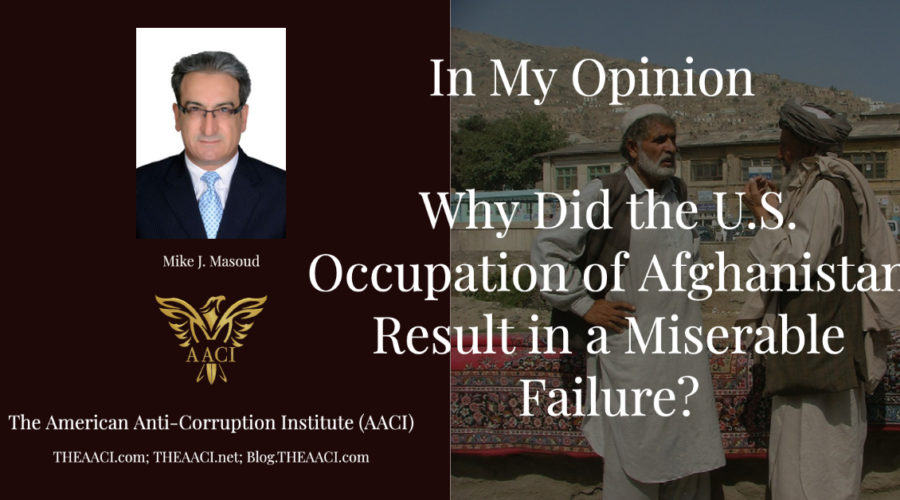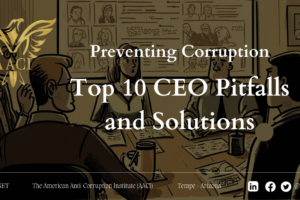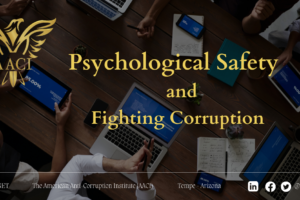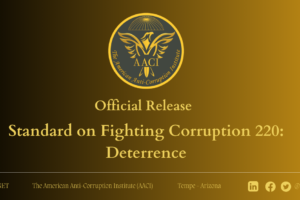Mike. J. Masoud
August 22, 2021
The scenes of the chaos at the Kabul International Airport the world watched summed up the U.S. and its allies’ failure in Afghanistan. It is disgraceful, revealing, and costly. But occupation does not have more than one definition in the United Nations. History taught us that the ultimate result of occupation is a failure and probably a bitter strategic loss. In my view, occupation is the ugliest stage of corruption. Though, I have no doubts whatsoever that corruption was one of the pillars that led to this shameful tragedy. The U.S. made the same mistake in Afghanistan and Iraq. It “created” local corrupt elites and provided them with unaccountable power.
In September 2016, the Special Inspector General for Afghanistan Reconstruction (SIGAR) issued a 164-page report entitled “Corruption in Conflict: Lessons from the U.S. Experience in Afghanistan.” The report stated in its executive summary six crucial lessons the U.S. government can learn from its experience with corruption in Afghanistan. Among these lessons are the following:
- “The U.S. government should take into account the amount of assistance a host country can absorb, and agencies should improve their ability to effectively monitor this assistance.
- The U.S. government should limit alliances with malign powerbrokers and aim to balance any short-term gains from such relationships against the risk that empowering these actors will lead to systemic corruption.
- U.S. strategies and plans should incorporate anticorruption objectives into security and stability goals, rather than viewing anticorruption as imposing tradeoffs on those goals.
- The U.S. government should recognize that solutions to endemic corruption are fundamentally political. Therefore, the United States should bring to bear high-level, consistent political will when pressing the host government for reforms and ensuring U.S. policies and practices do not exacerbate corruption.”
From September 2016 until the last day the U.S. announced it will withdraw from Afghanistan, there was no indication the U.S. learned any one lesson stated in the report.
Reports said the CIA had also begun delivering “bags of cash” directly to the Afghan government. “The so-called “ghost money” was meant to buy influence for the Central Intelligence Agency (CIA) but instead fuelled corruption and empowered warlords, undermining Washington’s exit strategy from Afghanistan, the newspaper quoted U.S. officials as saying.”
The Washington Post, Consumed by Corruption, mentioned that “Gert Berthold, a forensic accountant who served on a military task force in Afghanistan during the height of the war, from 2010 to 2012, said he helped analyze 3,000 Defense Department contracts worth $106 billion to see who was benefiting. The conclusion: About 40 percent of the money ended up in the pockets of insurgents, criminal syndicates, or corrupt Afghan officials.”
Casey Michel’s analysis and opinion provided an excellent overview of how the U.S. enabled Afghanistan’s corruption for years. As one American official said, “The biggest source of corruption in Afghanistan was the United States.”
Will the U.S. learn significant lessons from Afghanistan? Will the Memorandum on Establishing the Fight Against Corruption as a Core United States National Security Interest issued by the U.S. President help deter and prevent corruption? Let us wait and see.











































